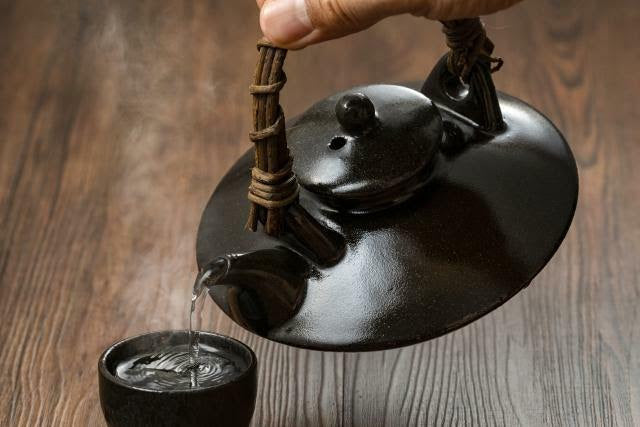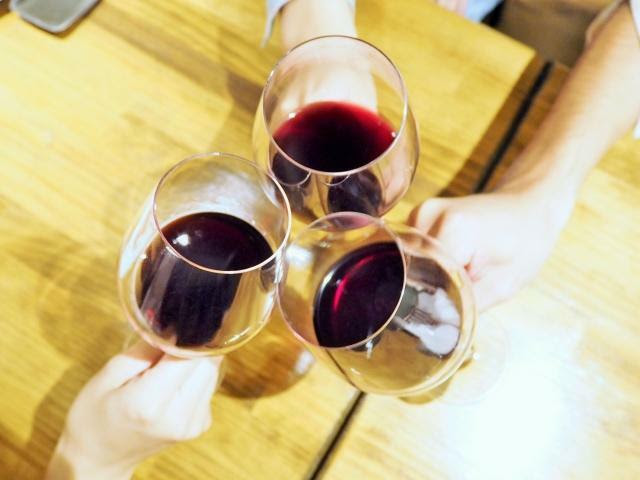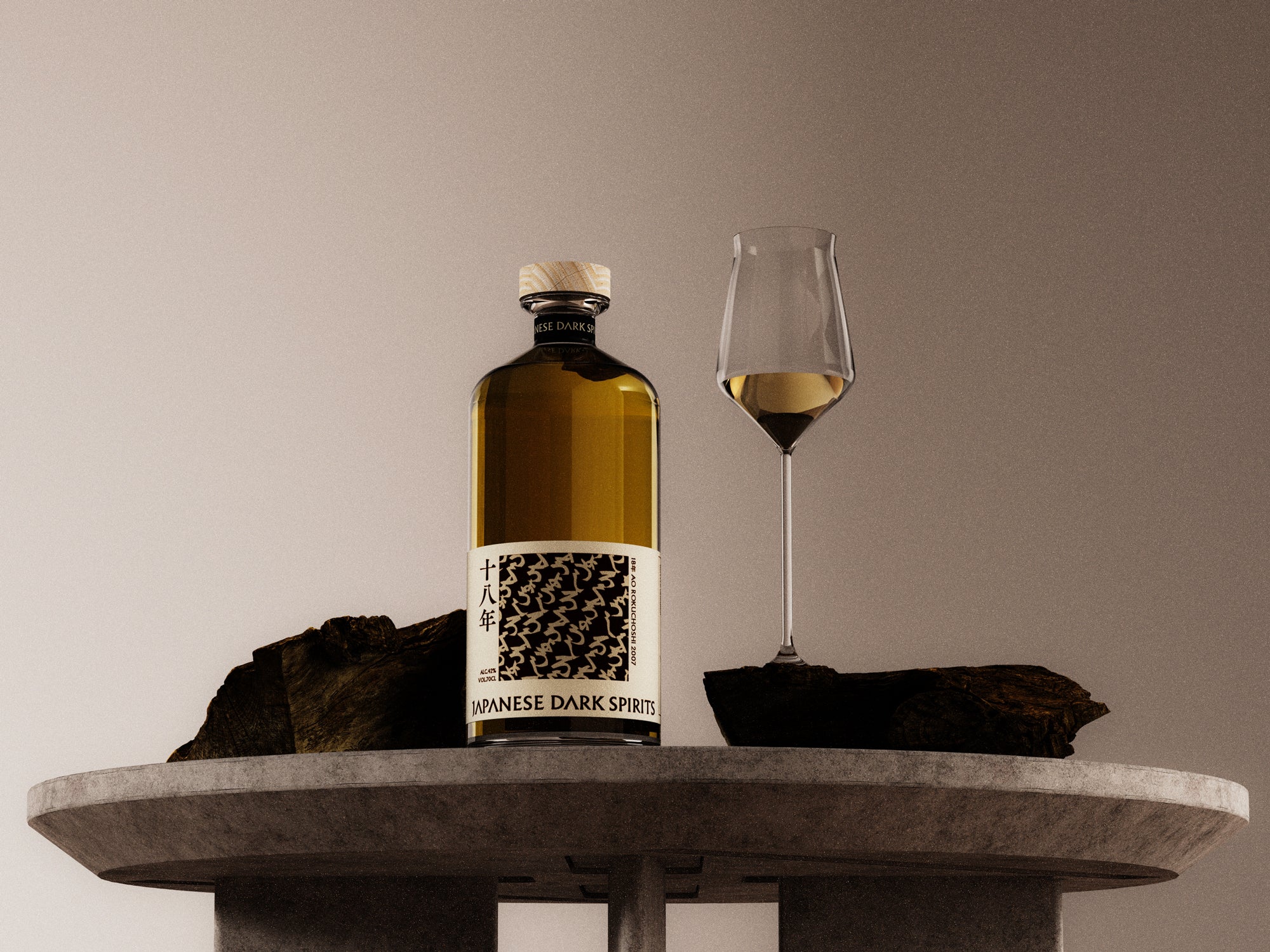Article: November 1st is “Honkaku Shochu Day”

November 1st is “Honkaku Shochu Day”
Origin of Honkaku Shochu Day
In fact, tomorrow, November 1st , is `` Authentic Shochu Day ''.
And that day is not just about shochu , but also `` Awamori ' ' .
It all began in 1987 when the Japan Manufacturing Association Federation designated November 1st of each year as ``Honkaku Shochu and Awamori Day .''
The production of sweet potato shochu , which accounts for the largest volume of production among honkaku shochu , begins around August to September every year, and the new sake of the year is shipped around November 1st , which is ``Honkaku Shochu Day .'' Every year, around the time of new sake , sake breweries around the country hold various events, such as new sake festivals, to express their gratitude to the consumers and local residents who support them on a daily basis . This year, many sake breweries are holding events online due to the influence of the new coronavirus. Even though it's online, there are many places that offer free alcoholic beverages, virtual sake brewery tours, and food pairing courses that you can enjoy while staying at home. So please come and join us.
“Authentic shochu” = “potato shochu”?

If you search for events around November 1st , Honkaku Shochu Day , you will find many new sake festivals for "potato shochu ."
So, is “honkoku shochu ” = “potato shochu ”? If you say so, it's not true.
Honkaku shochu is strictly defined by the Liquor Tax Law, and its contents are as follows.
[Honkaku Shochu ]
This refers to pot-distilled shochu distilled from the following alcohol-containing substances.
1.A Grains or potatoes, fermented products using these koji and water as raw materials
2. B. Products fermented using grain koji and water as raw materials
3.C Sake lees and things fermented using water as raw materials, sake lees, rice, rice koji and water fermented as raw materials, or sake lees
4. D. Products fermented using sugar (limited to those listed in Article 4, Paragraph 2 of the Liquor Tax Law Enforcement Order), rice koji, and water as raw materials.
5. E. Fermented grains or potatoes, their koji, water, and goods designated by the Commissioner of the National Tax Agency as raw materials (if the total weight of the raw materials designated by the Commissioner of the National Tax Agency is (Limited to items that do not exceed the weight of koji .)
Goods designated by the Commissioner of the National Tax Agency
Ashitaba, Azuki, Amachazuru, Aloe, Oolong tea, Plum seeds, Enoki mushrooms, Carrots, Pumpkin, Milk, Ginkgo, Kuzu powder, Kumazawa , Chestnut, Green peas, Kona seeds, Sesame, Konbu, Saffron, cactus, shiitake, perilla, radish, skimmed milk powder, onion, bonnet, smooth, horse chestnut, tomato , date palm, carrot, green onion, seaweed , green pepper, water chestnut , sunflower seeds , fukinoto , safflower, whey powder, hot aoi, matatabi, matcha, matebashii no mi, lily, mugwort, peanut, green tea, lotus root, wakame
Reference: National Tax Agency homepage/ related to shochu /[honkaku shochu ]
Things related to shochu |National Tax Agency (nta.go.jp)
In other words, ``honkoku shochu '' is made using a distillation method called single distillation, and refers to shochu that uses not only potatoes but also rice, wheat, and other ingredients that fall under approximately 50 designated types.
Therefore, not only sweet potatoes, but also barley shochu and rice shochu fall under the category of authentic shochu .
So, why does ``Honkaku Shochu Day ' ' correspond to the shipping period for new potato shochu ? There are various theories as to why this is the case, but this time I would like to explain it based on the person who proposed `` Honkaku Shochu Day '' and the historical background of when it was established.
Originally, this ``honkoku shochu '' was also called ``Otsurui shochu ''. Shochu is divided into ``Otsu-type shochu '' and ``Korui shochu '' depending on the distillation method, but the word ``Otsu'' may be taken to mean that it is inferior to ``A'', so it is classified into In 1957, the name ``Honkaku Shochu '' was proposed by a person named Junkichi Enatsu to replace ``Rui''. Junkichi Enatsu is the second-generation president of Kirishima Sake Brewery, which is famous for its sweet potato shochu, ``Kuro Kirishima.'' Therefore, although it has not been explicitly stated, `` Honkaku Shochu Day '' may have become a time for shipping new sweet potato shochu under the influence of the proponent.
Surprising similarities between wine and shochu

Also, if you are an alcoholic , when you think of November and alcohol, a certain period may come to your mind. Yes, it's "Beaujolais Nouveau release date ". Beaujolais Nouveau, which is released on the third Thursday of November every year, has gained popularity in Japan as it is the country in the world where you can drink it first due to the time difference. Its popularity exploded in the late 1980s during the bubble period, when `` Honkaku Shochu Day '' was established. At that time, many people were influenced by Beaujolais Nouveau and recognized that "new sake is delicious and valuable," and in order to follow this trend and improve the image of Otsurui shochu , new sake made from potato shochu was released. It is said that `` Honkaku Shochu Day '' was established in the same month as November.
Another factor that brought about the red wine boom in Japan was the so-called "French Paradox," the idea that "red wine might be good for your health." In 1988, Professor Sumi of Miyazaki Medical University (now Kurashiki University of Arts and Sciences) published a medical study on the health benefits of shochu called ``The relationship between shochu and blood clots.'' That research became a hot topic in the world more than ten years later , during the third shochu boom, but it was not until the late 1980s, when ``Honkaku Shochu Day ' ' was established. There is a history of efforts being made in various fields related to shochu to improve the image of shochu .
There are many other anniversaries related to alcohol.

In addition to "Honkaku Shochu Day ," " Awamori Day ," and "Brown Sugar Shochu Day ," there are also "Iki Shochu Day " on July 1st , " Kuma Shochu Day " on August 8th , and "Kuma Shochu Day" on October 1st . There are various anniversaries related to alcohol , such as `` Sake Day ''. If you are interested in the world of alcohol and would like to expand your knowledge, please come and enjoy Sake Day as an opportunity to participate in the event or try a brand you have never tried before.

